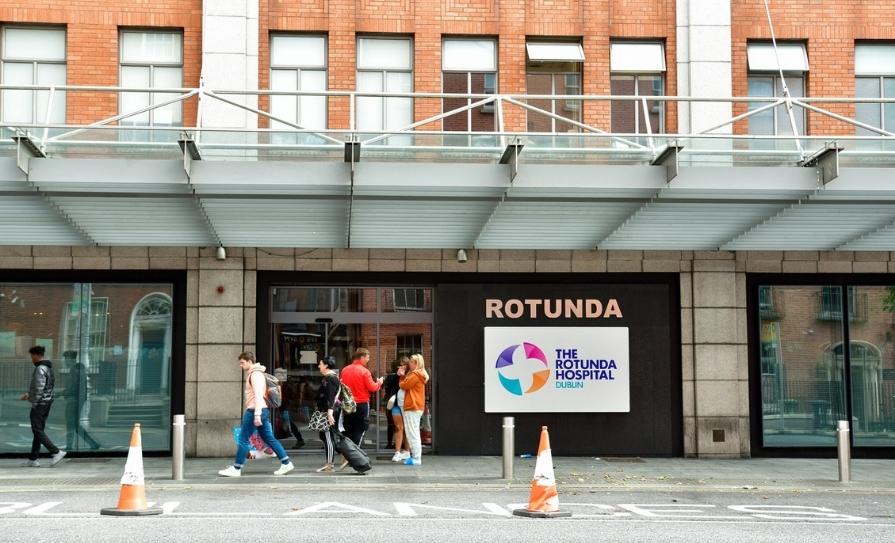There was insufficient anaesthesiology manpower to fully staff out-of-hours rosters in four out of six model 3 hospitals with obstetrics and paediatrics units, which were assessed by HSE Internal Audit.
The audit report, dated March 2022, aimed to determine the level of assurance that could be provided to management for a random sample of six such sites in relation to anaesthesiology cover and the measures in place to address any shortfall.
The model of care for anaesthesiology (2019) recommended a ‘2 plus 2’ model of cover for unscheduled care. This refers to availability, at all times, of an on-call anaesthesiologist/critical care team of two consultants and two NCHDs.
Two hospitals had the required number of whole-time equivalent consultants to operate this model. However, 25 additional anaesthesiology consultants would be required if the other four hospitals were to do so.
Three sites had identified that recurring staffing deficits for doctors in anaesthesiology could negatively impact on their ability to deliver high quality, safe care and this was recorded on the local risk registers. Two sites that did not operate the ‘2 plus 2’ model had not identified anaesthesiology cover for unscheduled care as a risk on their risk registers. The final site reported it had recorded this risk on the perioperative directorate risk register.
The model of care had noted that, in some model 3 hospitals, the daytime workload would not warrant the anaesthesiology staffing level required to provide the ‘2 plus 2’ model. However, it recommended this standard for unscheduled care as a minimum acceptable cover in model 3 hospitals which have a co-located obstetrics unit, along with an anaesthesiology/critical care service.
“After the site visits were completed, Acute Operations stated that the model of care was not an accepted policy position or standard for the purposes of service provision,” according to the audit report.
Based on the audit findings, the overall assurance level for the following hospitals was ‘unsatisfactory’: University Hospital Waterford; Tipperary University Hospital; Wexford General Hospital; and Midlands Regional Hospital, Mullingar. Assurance was ‘limited’ for Mayo University Hospital, while Our Lady of Lourdes, Drogheda, had a finding of ‘satisfactory’.
The audit recommended the National Director of Acute Operations establish an agreed policy position related to anaesthesiology cover “as soon as possible”.
A HSE spokesperson told the Medical Independent: “Discussions are ongoing regarding the range of anaesthetic cover that is required to match the range of anaesthetic workloads across model 3 hospitals.”
Mr Martin McCormack, CEO of the College of Anaesthesiologists of Ireland (CAI), said the priority arising from the audit related to to the maintenance of “safe healthcare service delivery”. The College “understands that the HSE is actively engaging with the sites to ensure that compliance with the standard is achieved”.
He added: “A second issue arises in relation to training of specialist doctors. Some of the hospitals audited are accredited as training sites for the CAI. Practical clinical experience in hospitals in Ireland is an integral part of our training programme, within which our trainees are prepared for clinical practice with the goal being to become safe, effective decision-makers providing evidence-based care.
“To be effective in providing the required experience, the clinical learning environment needs to reflect an open culture that values education, while respecting the primacy of patient-centred care. The HSE internal audit findings indicate that the level of assurance that may be provided about the effectiveness of the governance, risk management and internal control system in those clinical sites is unsatisfactory and this has implications for the continued accreditation of training in anaesthesiology at those sites.”
According to Mr McCormack, the CAI must “ensure or be assured that the clinical learning environment reflects a culture of good governance to support the provision of specialist anaesthesiology training and education”.
The HSE internal audit indicated that the level of staffing and trainees’ working patterns and workload (as benchmarked against the standards set out in the HSE model of care) were not appropriate to ensure patients received safe and effective care, while providing the learning opportunities to meet the required outcomes of the specialist anaesthesiology training programme.
“We have committed to work with the HSE and the clinicians in those hospitals to ensure that their quality improvement plans to address the audit findings are achieved so that training accreditation can remain in place. Our hope is that this can be achieved by July 2023,” concluded Mr McCormack.













Leave a Reply
You must be logged in to post a comment.